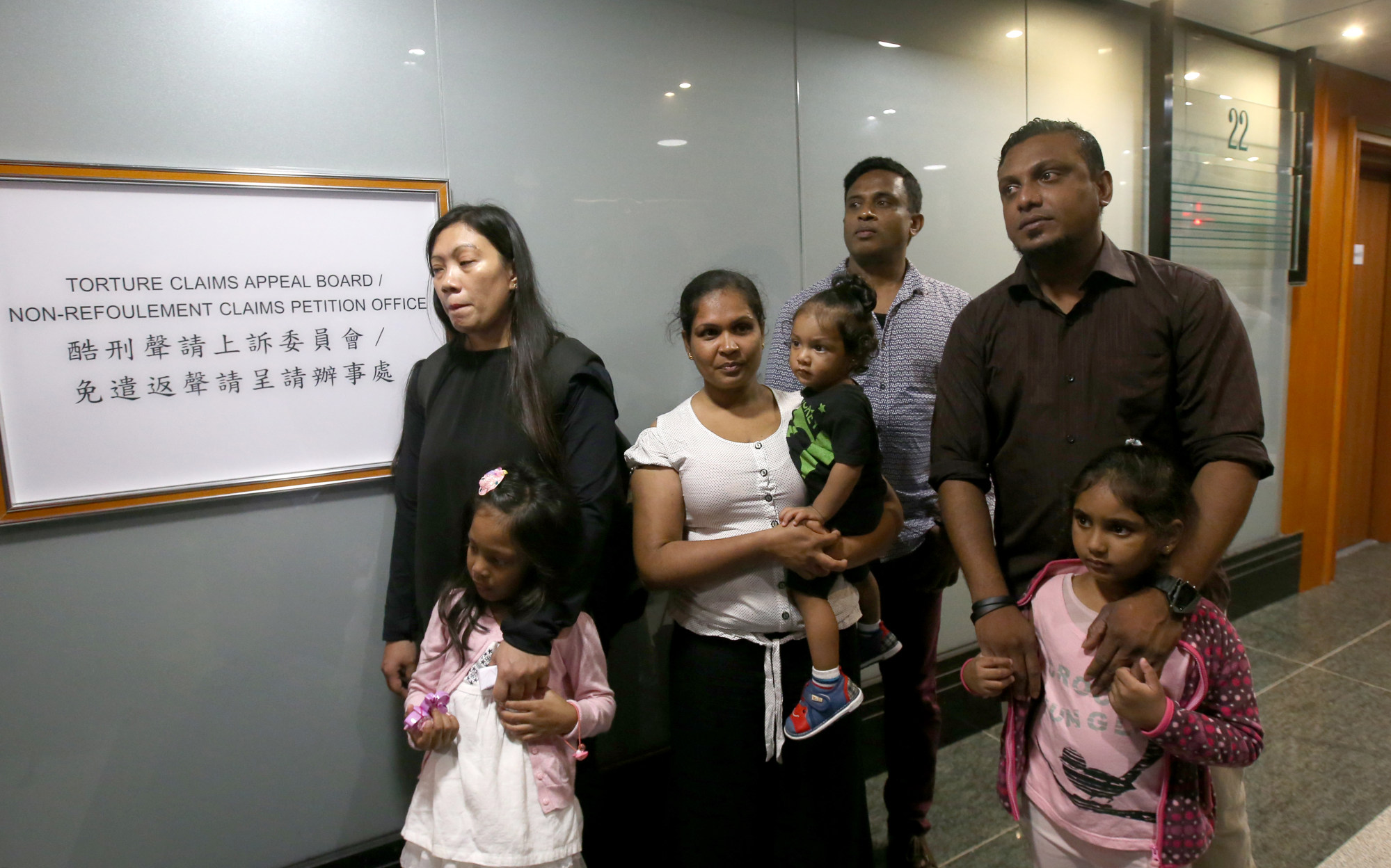
Whistle-blower Edward Snowden’s lawyer accuses Hong Kong Bar Association of using ‘false complaints’ in bid to stop him from practising
- Canadian lawyer Robert Tibbo says he resigned from Hong Kong Bar Association because he believed he would never get a fair hearing
- Tibbo denies ‘helping Snowden to escape’ and ‘exploiting his clients to make money for himself’ as well as putting them in danger
A human rights lawyer has accused the Hong Kong Bar Association of trying to stop him from practising in the city by using “false complaints” for his role in representing Edward Snowden and getting refugees to shelter the whistle-blower in 2013.
Canadian Robert Tibbo said that in 2017 outgoing Bar Association chairwoman Winnie Tam Wan-chi and present Secretary for Justice Paul Lam Ting-kwok, her successor, initiated an internal disciplinary investigation against him.
Snowden, a former contract worker at the US’s National Security Agency, leaked thousands of documents that outlined the United States’ global surveillance programme to the world’s media from Hong Kong in June 2013 and was represented by Tibbo while in the city.
Tibbo told a press conference in Montreal on Monday night that he chose to speak out partly because Ajith Pushpa Kumara, the final refugee still in Hong Kong who sheltered Snowden during his time in the city, had been granted asylum seeker status in Canada and was waiting for resettlement arrangements to be made.
Do whistle-blowers like Edward Snowden still have a place in Hong Kong?
The lawyer, who faces a maximum penalty of disbarment for life, also said he had resigned from the Bar Association, the professional body for the city’s barristers, as he believed he would not be given a fair trial.
“The Hong Kong Bar Association used false and anonymous complaints by members of the Hong Kong Bar Council to investigate and [internally] prosecute me for almost seven years, and this prosecution is still ongoing,” Tibbo said.
The Bar Council is the association’s governing body.
The Post contacted Lam for comment and a spokesman for the Secretary for Justice said questions should be referred to the Hong Kong Bar Association.
A Hong Kong Bar Association spokesman said the organisation did not comment on any individual cases or complaints.
June 12, 2013: US spy net targets Hong Kong, Edward Snowden reveals to SCMP
“The Bar has a long-established, fair and transparent mechanism to deal with any complaints made against any of its members. The system is provided for by statute and is fair to both complainants and the members against whom complaints have been made,” he added.
Lawyers Without Borders Canada (LWBC) said it condemned “the repression against him [Tibbo] by the Hong Kong Bar Association.”
A LWBC press release said: “The disciplinary and administrative proceedings against Mr Tibbo violated several judicial guarantees and basic principles of justice recognised by international legal instruments such as the UN Declaration on Human Rights Defenders and the UN Basic Principles on the Role of Lawyers.

“In particular, there were violations of Mr Tibbo’s rights to due process, to a fair and public trial before an independent and impartial tribunal, to be heard, and to be represented by counsel of his choice.”
Former chairwoman Tam has also been contacted for comment.
Tibbo, who was a human rights lawyer in Hong Kong at the time, decided to hide Snowden in the homes of seven of his clients, who were non-refoulement claimants in the city, before Snowden flew to Moscow on June 23, 2013.
Multimedia: Edward Snowden in Hong Kong
Hong Kong does not recognise asylum seekers or refugees. Instead, it offers non-refoulement, which ensures that individuals will not be returned to a country where they would be at risk of persecution or torture.
Tibbo said that in March 2017 the Bar Council told him that anonymous complaints had been made against him “for helping Snowden to escape”, “exploiting his clients to make money for himself” and for “putting the non-refoulement claimants in danger” by having them help the whistle-blower.
Four Hong Kong ‘Snowden refugees’ arrive in Canada for new life as residents
The Bar Association said that because of this, the non-refoulement claimants would “never be able to resettle in a third country”, Tibbo added.
He was charged with not responding to the anonymous complaints in November 2018. Eleven formal charges were referred to a tribunal set up by the Bar Council in January 2020.
The first tribunal was dissolved when the chair recused herself. Proceedings continue in a second tribunal.
Tibbo also said the Bar Council disclosed that the complaints had been made by “large groups” of the association from which council and disciplinary tribunal members could not be excluded, creating a potential conflict of interest.
“When they brought disciplinary proceedings against me in 2017 and 2020 … I pointed out that you are going to have an investigator and a tribunal judging my case who may have made complaints against me,” he said.
Tibbo said that with all seven refugees being granted international protection in Canada, him taking the cases pro bono and Snowden able to leave Hong Kong without interference, the anonymous claims to the Bar Association were false.
US whistle-blower Snowden defends Russian citizenship
“I never helped Snowden escape,” Tibbo said. “I helped him as a lawyer and he was able to walk freely through [airport] immigration.”
Tibbo also said the Bar Association “attacked me based on my clients’ cause” during the press conference.
He added the complaints were made on the basis that he represented Snowden as well as the refugees who sheltered him.
Families who sheltered Snowden have been singled out, says lawyer
“It is a well-established legal ethical rule that no one is to identify the barrister with the clients’ cause,” Tibbo said.
“And that is exactly what the Bar Council under Winnie Tam, then senior counsel of Legal Chambers, and Paul Lam, then senior counsel of the Bar Association and the incoming chairman, did.”
The UN’s Basic Principles on the Role of Lawyers rules: “Lawyers shall not be identified with their clients or their clients’ causes as a result of discharging their functions.”
Tibbo also alleged that he was subject to discrimination based on his nationality.
He said that during the Bar Association’s annual general meeting in 2017 he was frequently referred to as “the Canadian” or “that Canadian”.
Tibbo added he would continue practising law in Canada as a member of the Nova Scotia Bar Association, in his own firm, Tibbo Law.


